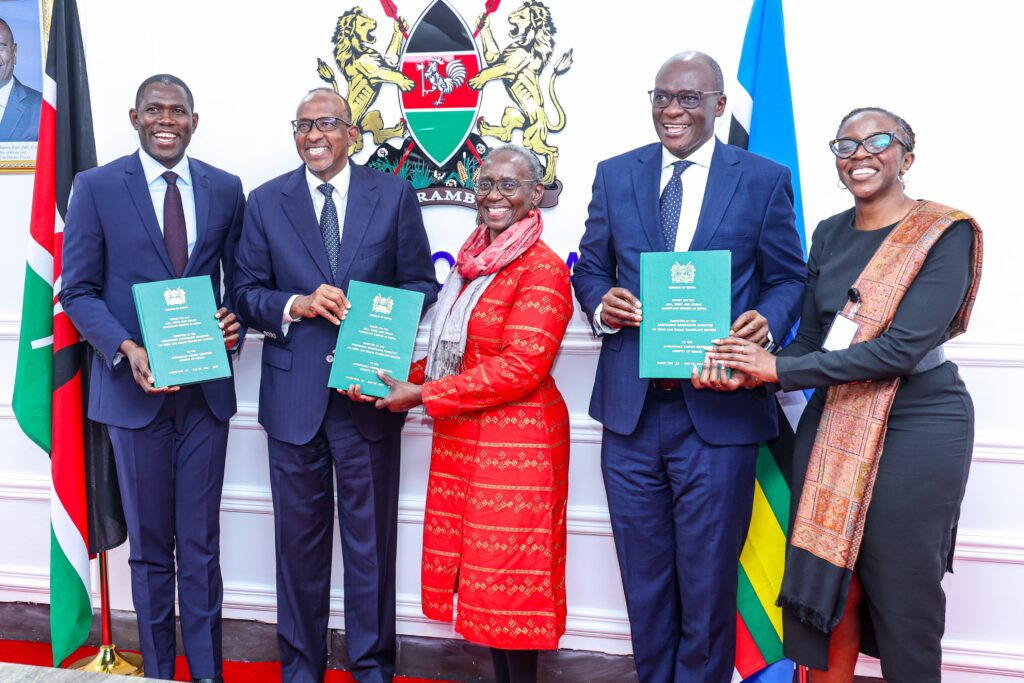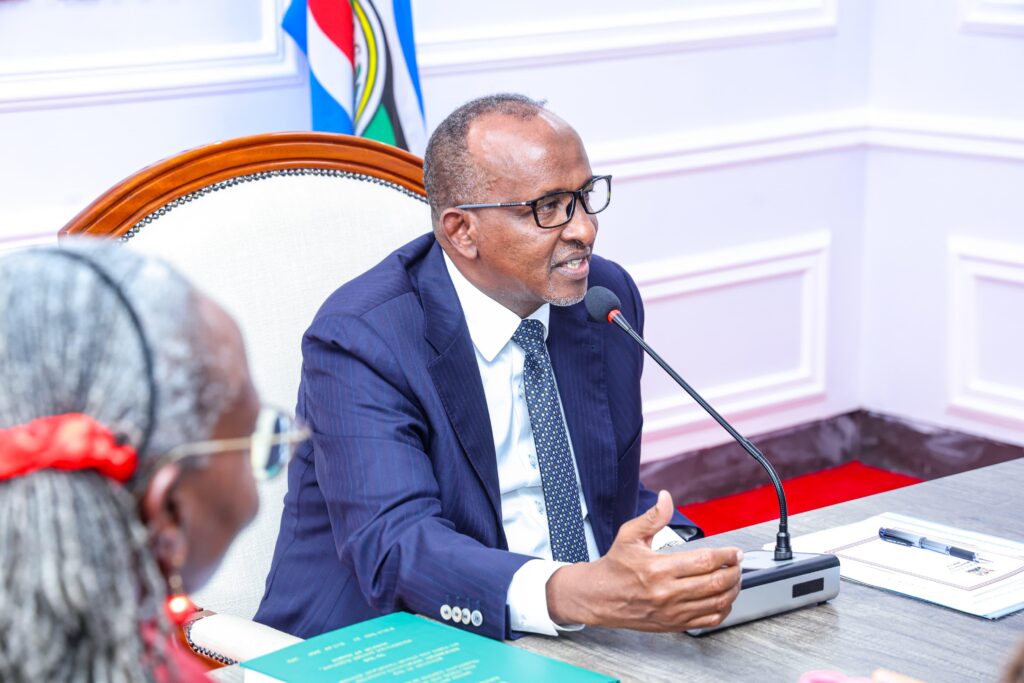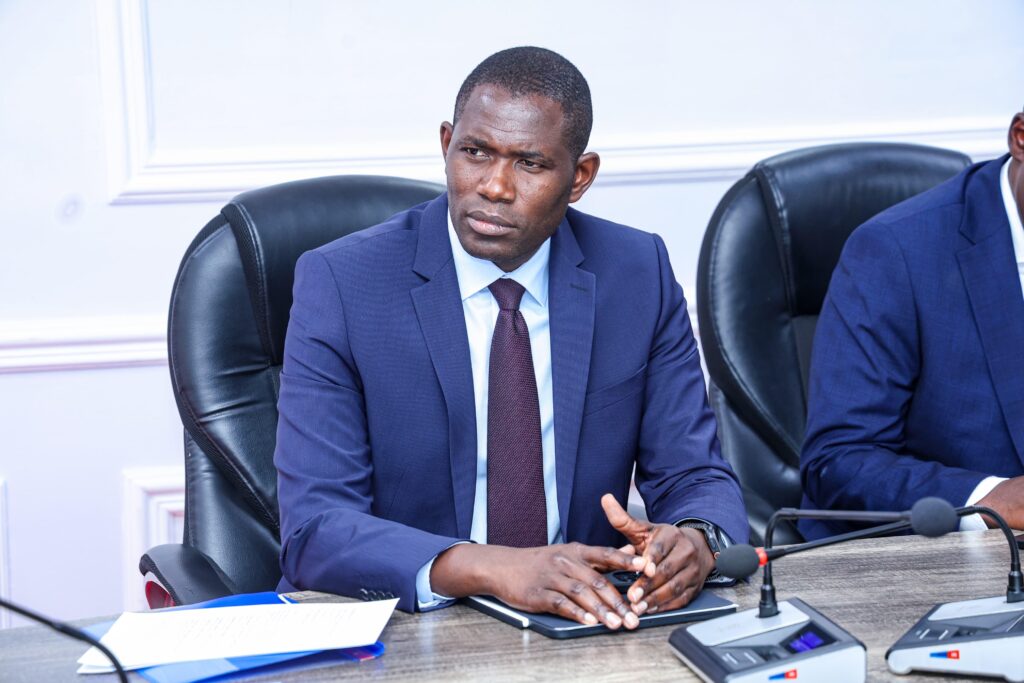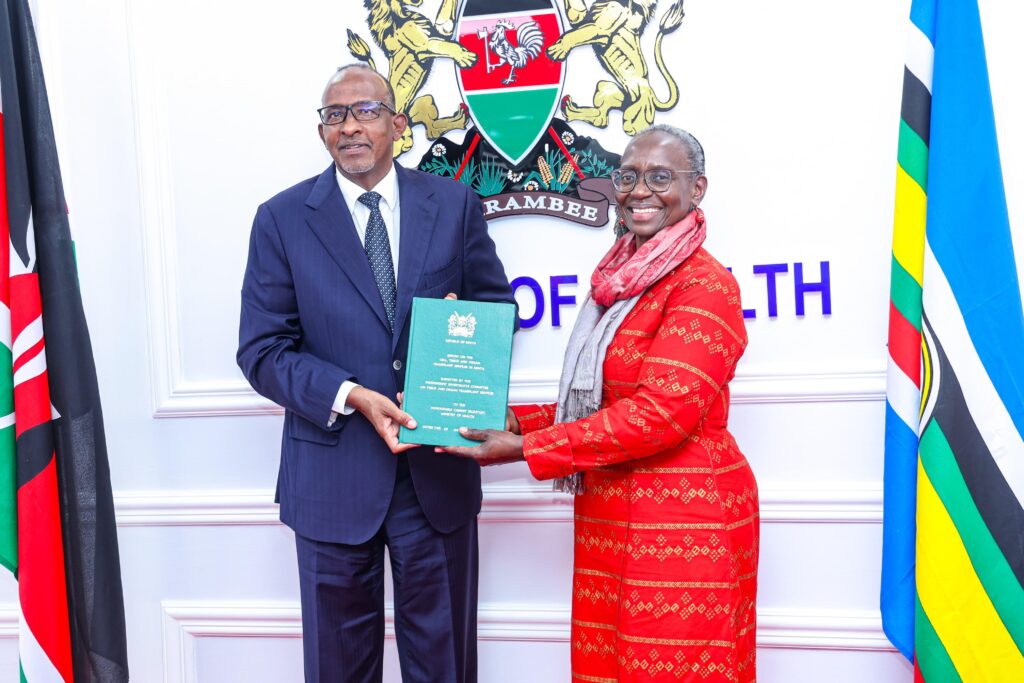An independent 13-member committee that investigated allegations of organ trafficking at Mediheal Hospital in Eldoret has submitted its findings to Health Cabinet Secretary Aden Duale in Nairobi, marking a pivotal moment for oversight of Kenya’s tissue and organ transplant system.
Chaired by Prof. Elizabeth Bukusi, a Senior Principal Clinical Research Scientist at the Kenya Medical Research Institute (KEMRI) and Professor at the University of Washington, the committee was established through Gazette Notice No. 78 of April 23, 2025, with a three-month mandate to examine the allegations and evaluate safeguards across transplant services.

The team delivered a 313-page report within the stipulated timeframe. Ministry of Health technical teams are now reviewing the document in detail. Their analysis is expected to inform major policy decisions and reforms intended to tighten governance from donor identification and consent to procurement, matching, and post-transplant follow-up.
According to an official brief, the report contains comprehensive findings and recommendations aimed at strengthening regulatory frameworks, enhancing transparency, and preventing malpractice in transplant services nationwide. While the full text has not yet been released, areas likely to attract attention include clearer facility licensing standards, robust traceability of human tissues, harmonized data reporting, and stronger ethics review and patient-protection mechanisms.

Cabinet Secretary Duale has pledged to implement the recommendations in full once internal review and stakeholder consultations are complete. Effective implementation will require coordination with professional councils, regulatory agencies, law-enforcement partners, and county health departments to ensure consistent application across both public and private facilities.
No public release date for the report has been confirmed. A summary is expected after the Ministry completes its technical review and engages professional societies, patient advocates, and county officials on implementation priorities. Transparent communication at each stage will be critical to rebuilding trust where allegations have raised public concern.
Kenya, like many countries expanding complex surgical and transplant capabilities, must balance growth in clinical capacity with rigorous ethical oversight, reliable data systems, and patient education. The committee’s recommendations—if fully actioned—could lay the groundwork for a more transparent, equitable, and accountable transplant ecosystem that protects donors, recipients, and the integrity of the health system.

Stakeholders say implementation should be phased with clear timelines, budget allocations, training for transplant teams, and public reporting dashboards so citizens can track compliance. Integrating digital registries and a national donor database could also reduce opportunities for illicit diversion and improve matching efficiency. Robust whistleblower protections can further deter abuse nationwide.

